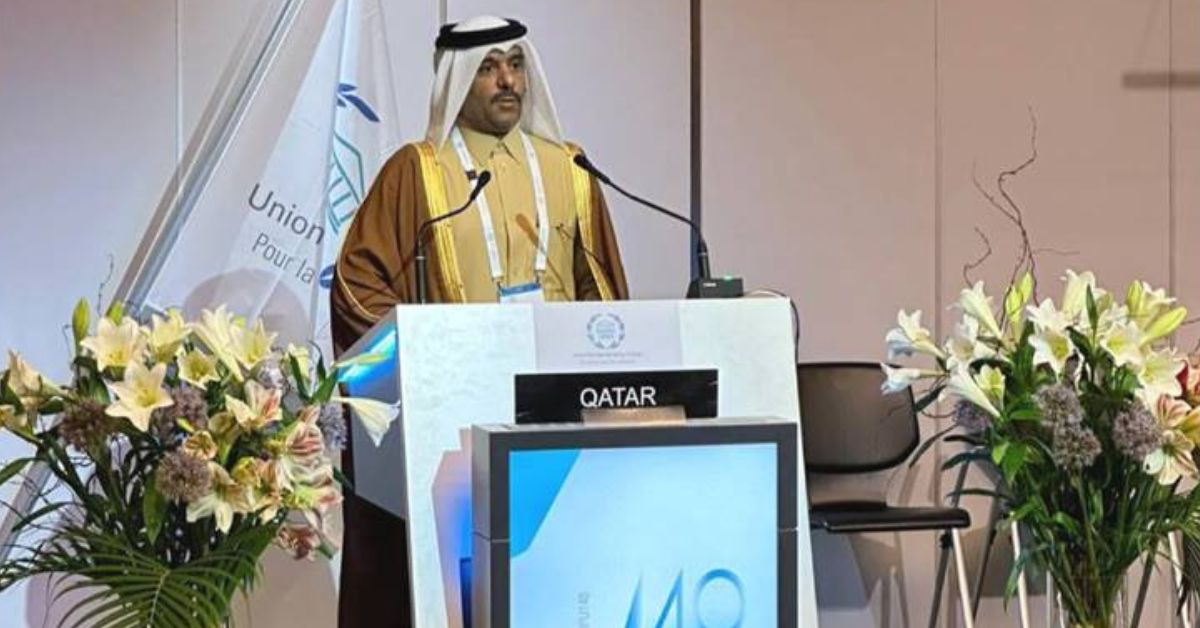Geneva – Lawmakers have the tools for change through collaborating with governments and earmarking resources to stop wars and conflicts, said Qatar’s Shura Council Member Ali bin Ahmed Al Kaabi while addressing the 148th General Assembly of the Inter-Parliamentary Union (IPU), currently being held in Geneva, Switzerland.
Speaking at the event, under the theme ‘Parliamentary diplomacy: Building bridges for peace and understanding,’ he also highlighted the importance of reforming the United Nations (UN) system and activating the role of its bodies to achieve justice and equality.
The Shura Council underscored the importance of the parliamentary role in achieving peace and stability, by strengthening the role of parliamentary diplomacy, making optimal use of legislative tools, and fostering understanding and dialogue.
Al Kaabi pointed out the necessity of leveraging parliamentary diplomacy to avert wars and conflicts, through mediation and good offices that lead to reconciliations and peace agreements, highlighting in this context the State of Qatar’s neutral and credible mediation efforts, which have earned it the confidence of the international community.
Speaking about the Shura Council’s efforts to promote peace and stability, Al Kaabi highlighted the Council’s endeavors to issue an international law criminalizing hate speech, rejecting violence against minorities, and the contempt of religions and their adherents. In a related context, he highlighted Qatar’s hosting of the premises of the Global Organization of Parliamentarians Against Corruption (GOPAC).
Al Kaabi pointed to the parliamentarians’ capacities to address unconstitutional changes jeopardizing sovereignty in democratic countries, ensure that governments implement international treaties and agreements to achieve sustainable development, international peace and security, and combat climate change, and to take concrete steps to curb carbon emissions to help address the climate crisis.
Commenting on the situation in the Gaza Strip, he expressed the Shura Council’s condemnation of the Israeli occupation forces’ brutal aggression and massacres against Palestinians. He also slammed the international community’s inability to stop the machine of killing and destruction, achieve security and peace, and punish those responsible for the genocide in Gaza and in the rest of the occupied Palestinian territories.
He urged parliamentarians and governments to do their part to stop these crimes and provide protection for the defenseless Palestinian people, lift the siege on them, and enable them to enjoy their legitimate rights to life, independence, and self-determination, in addition to their right to establish their independent state on the 1967 borders with East Jerusalem as its capital.
Meanwhile, the Shura Council delegation to the IPU Assembly held a meeting on Monday with the Third Deputy Speaker of the Swedish Parliament (Riksdag), Kerstin Lundgren, along with several Riksdag members.
Both sides discussed the cooperation relations between the Shura Council and the Riksdag and ways to strengthen them. The Shura Council, represented by Council member Dr. Sultan bin Hassan Al Dhabet Al Dosari, participated in the meeting of the IPU’s Standing Committee on Democracy and Human Rights, held as part of the 148th IPU Assembly in Geneva.
The meeting addressed the impact of artificial intelligence on democracy, human rights, and the rule of law. The participants conducted a workshop on artificial intelligence and discussed sustainable measures to improve the living conditions of people with disabilities, including their opportunities for education and employment.
Addressing the meeting, Al Dosari emphasized that the development of technology could enhance democracy by facilitating popular participation and increasing transparency. However, he warned that the global development of AI, in particular, raises growing concerns and fears for national security, democracy, and human rights.
He stressed the importance of studying the impact of AI technologies on these vital issues locally, regionally, and globally, and of establishing national foundations, frameworks, and legislation to regulate the use of these technologies in a manner that benefits the individual and society.
In this context, Al Dosari highlighted Qatar’s national strategy on AI, which is centered around six pillars: education, access to data, employment, business, research, and ethics. He added that the State of Qatar had formed an AI committee within the Ministry of Communications and Information Technology to develop mechanisms for implementing this strategy.
Meanwhile, Shura Council Member Ahmed bin Ebrahim Al Malki participated in the meeting of the IPU’s Standing Committee on United Nations Affairs. The attendees discussed efforts to ensure youth participation in the work of the UN, sustainable UN humanitarian work, and a parliamentary proposal to reform the UN Security Council. (QNA)








